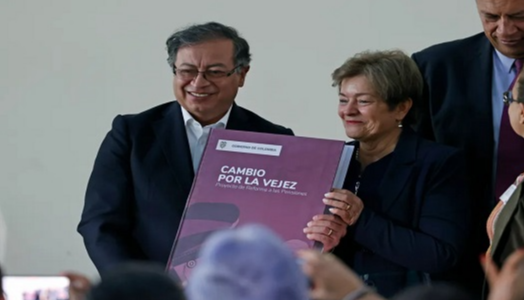
Pension reform in Colombia
By María Josefina Arce
One of the main social initiatives of the president of Colombia, Gustavo Petro, the pension reform, was approved in recent days by Congress. The transformation of the current system comes to settle an old debt with an increasingly aging society.
In his account on social network X, the president stated that this was the main social achievement of the working people of Colombia in a long time.
With this change, the government seeks to expand the system so that all Colombians of retirement age can benefit from resources, even without having contributed enough in salaries.
For decades the pension system in the South American nation has been characterized by insufficient coverage. According to official data, only 25% of so-called senior citizens receive a pension.
Analysts estimate that there is consensus in the South American nation on the need to improve protection for this vulnerable population sector.
The approved government proposal is committed to the complementarity of private funds and the public system, administered by Colpensiones, based on four pillars.
Now, in a first modality, more than two million older adults who never contributed or had their money stolen and today are over 65 years old will benefit.
The second modality includes those who contributed for a good part of their lives, but do not have enough to retire. Therefore, they will receive a pension income made up of the savings made in the Colpensiones public fund and a subsidy of up to 30% that the Colombian state will grant them.
With the change in the system, a greater percentage of women will also access a pension and progress will be made in reducing the gender gap.
This is the first of the government reforms that Congress sanctions, since the labor reform is still in process, the health reform collapsed in March and the education reform still needs a debate to become law.
The initiative of the Petro government to transform the pension system is a sign of its commitment to the protection and well-being of all Colombians and especially, to those sectors that have historically been the most forgotten.

